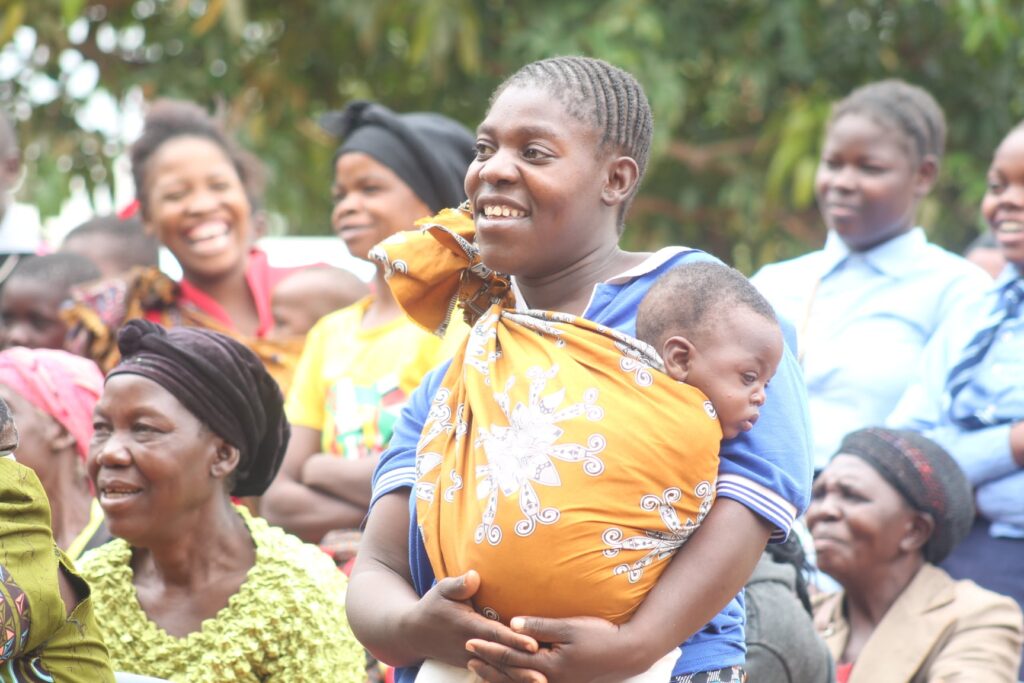
Service Her Project
Women living with HIV (PLHIV), the LGBTIQ+ community, and displaced individuals in Maputo and Cabo Delgado face stigma, discrimination, gender-based violence, and limited access to healthcare, leading to mental health issues like anxiety and depression. The REPSSI’s SERVICE HER project, funded by HIVOS and implemented from June 2022 to May 2024 with partners like the Provincial Health Directorate, trained peer educators and healthcare providers, enhancing access to friendly SRHR services. Outcomes included improved service quality and strengthened advocacy for rights holders.
OUR PROGRAMMING
The SERVICE HER project aims to address barriers faced by women living with HIV (PLHIV), the LGBTIQ+ community, and displaced individuals in accessing equitable Sexual and Reproductive Health and Rights (SRHR) services. The focus is on mitigating stigma and discrimination while empowering rights holders to participate in decision-making. The goal is to create an inclusive environment that improves access to friendly SRHR services and promotes the leadership of rights holders in health-related matters.

PROJECT APPROACH

The SERVICE HER project employed a participatory approach, engaging rights holders in decision-making and program implementation. It focused on training peer educators and healthcare providers to enhance service delivery and address stigma. The project collaborated with community-based organizations and government partners, it promotes inclusive environment that empowers women living with HIV, the LGBTIQ+ community, and displaced individuals to access equitable SRHR services.
Capacity building in the SERVICE HER project involved an intensive training provided by REPSSI to equip community-based organizations and healthcare providers with knowledge and skills in the programme delivery. The training covered critical topics such as Sexual and Reproductive Health and Rights (SRHR), HIV, gender-based violence and mental health psychosocial support. By promoting knowledge and skills, participants were equipped to deliver quality services and adopt improved healthcare practices. This project strengthened the organizational leadership and management structures, promoting a more inclusive and participatory approach that effectively addresses the needs of women living with HIV, the LGBTIQ+ community and displaced individuals.
The SERVICE HER project implemented interventions that benefited women living with HIV (PLHIV), the LGBTIQ+ community and displaced individuals.
Key actions included training peer educators in Sexual and Reproductive Health and Rights (SRHR), HIV, and psychosocial support, enabling them to provide vital community support. Healthcare providers received training in humanized care, enhancing service quality. Collaborative needs assessments empowered beneficiaries by ensuring their voices were heard, leading to improved access to health services and reduced stigma.
The SERVICE HER project achieved significant outcomes, including the development and implementation of gender policies by 23 community organizations, enhancing their capacity to advocate for the rights of marginalized groups. Healthcare providers demonstrated improved engagement and behavior change, resulting in higher-quality services for beneficiaries. Furthermore, rights holders successfully led project initiatives, ensuring their voices were included in decision-making processes.
Overall, these outcomes contributed to increased awareness, reduced stigma, and improved access to equitable health services.
Post-project implementation, REPSSI learnt the importance of community engagement and the effectiveness of training peer educators in promoting mental health and psychosocial support awareness for marginalized groups. The positive behavior changes observed among healthcare providers highlighted the impact of targeted training on service quality.
However, areas for improvement include enhancing communication strategies to reach more beneficiaries and ensuring sustained support for the trained peer educators. Additionally, ongoing collaboration with local organizations is vital for addressing gaps in services and maintaining advocacy efforts for marginalized communities.
